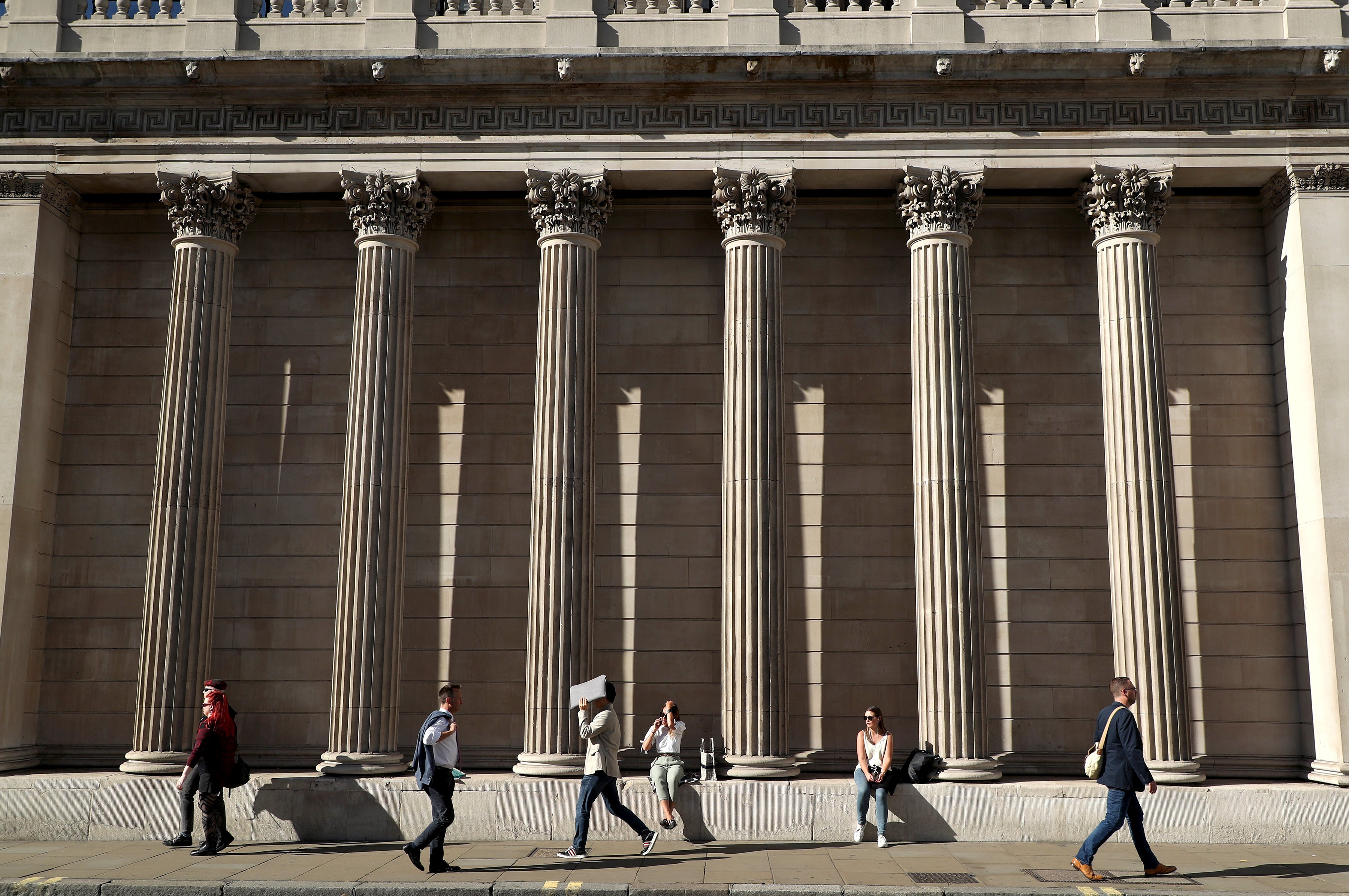Bank of England charges up rates while warning of a very bad outlook
A recession is on the way, with inflation set to peak at 13 per cent. What’s really worrying is the way these projections are getting progressively worse each time the Bank updates them, writes James Moore


A 0.5 per cent interest rate rise? We knew that was coming. It became obvious as soon as the Bank of England’s home team on the rate-setting Monetary Policy Committee (MPC) followed the lead of its external hawks with “get tough” speeches.
No, the real nasty was in the economic forecasts, which emerged alongside the rate rise. That was bad. They were hideous.
The Bank’s language was sober and measured, as it usually is, but with the content it laid it on as thick as a child given a jar of Nutella to slather on a slice of bread.
Inflation topping out at 13 per cent, a recession starting in the fourth quarter (happy Christmas then) and lasting for a year, growth as weak as someone staggering to the gym with a vicious New Year hangover after that.
Talk about a gut punch. The really disturbing thing about this has been the trajectory. Each time the Bank updates, these forecasts get worse, and appreciably so.
Were there any crumbs of comfort to be had? A few. If you looked really hard with a can of optimist’s Kool Aid at hand.
The Bank still expects inflation to come down to 3 per cent in time, and says it would more or less do this even if the MPC were to sit on its hands. Unemployment will inevitably rise but it is not, currently, expected to be awful, partly because Britain continues to suffer from a lack of available workers.
There have also been few indications of post-Covid effects unwinding. The used car market has, for example, stabilised somewhat after being driven up by a distinct shortage of new vehicles, the casualties of supply chain snafus.
If that sounds like clutching at straws, it is. About the best thing you could draw from the Bank’s release might actually be its admission that forecasting in the current climate is all but an exercise in pin sticking. So it mightn’t be quite as bad as it fears.
The energy market is, of course, key. It is the chief driver for inflation and it is something that the MPC is powerless to influence. The latter’s current assessments are based on “wholesale energy prices following their futures curves” which could easily look very different next week.
Geopolitics will inevitably play a role here too, but that’s not a hopeful sign in the current climate of sabre rattling and sabres clashing.
Which moves us neatly on to domestic politics. It hardly looks any better.
The current crisis demands really does demand carefully considered attention from sober, sensible people.
The MPC’s members are, more or less, in that category. They have one tool at their disposal and a menu of bad options from which to pick when it comes to deciding how to use it. They’re trying to pick what might best be described as the least worst option.
On balance, they have done the right thing this time. Having banged on about how seriously they view the current situation, and repeatedly restated their commitment to doing what it takes to bring inflation down, they have acted, albeit still with more conservatism than some of their peers. In the US, the Federal Reserve has, for example, been bumping rates in 0.75 point margins.
Rates are not on a “pre-set” path, the MPC said, but we can probably pencil in a further bump because it doesn’t operate in isolation. It certainly doesn’t want to see sterling bombed out through others’ more aggressive rate rising weakening the pound and firing up the price of imports.
The trouble for the Bank is that it is operating in a political climate in which its political masters are neither sensible, nor particularly sober.
In fact, they seem determined to do the wrong thing: inflationary tax cuts which favour the better off instead of support for the most vulnerable, who are set to suffer in a way this country hasn’t seen in living memory, being the most obvious example.
Liz Truss, whom it would be hard to trust managing the budget of Thetford Town Council in her constituency on the basis of her policy proposals, has mooted reviewing the Bank’s mandate. This is born of the utmost cynicism.
Right now, the Treasury has more power over the inflation rate than does the MPC. Fiscal policy could ease the pressure on families, which the Bank acknowledges, but perhaps lacks the empathy to truly understand. This is how it should be utilised.
On the other hand, it could just as easily make a bad situation worse. The current proposals of the leadership contenders are in that ballpark. It’s just that one set of them (Truss’s) looks somewhat worse than the other (Rishi Sunak’s).
If the projections continue to deteriorate, the Bank looks set to come under sustained fire, fire which should probably be directed a little way to the West of its Threadneedle Street HQ.






Join our commenting forum
Join thought-provoking conversations, follow other Independent readers and see their replies
Comments